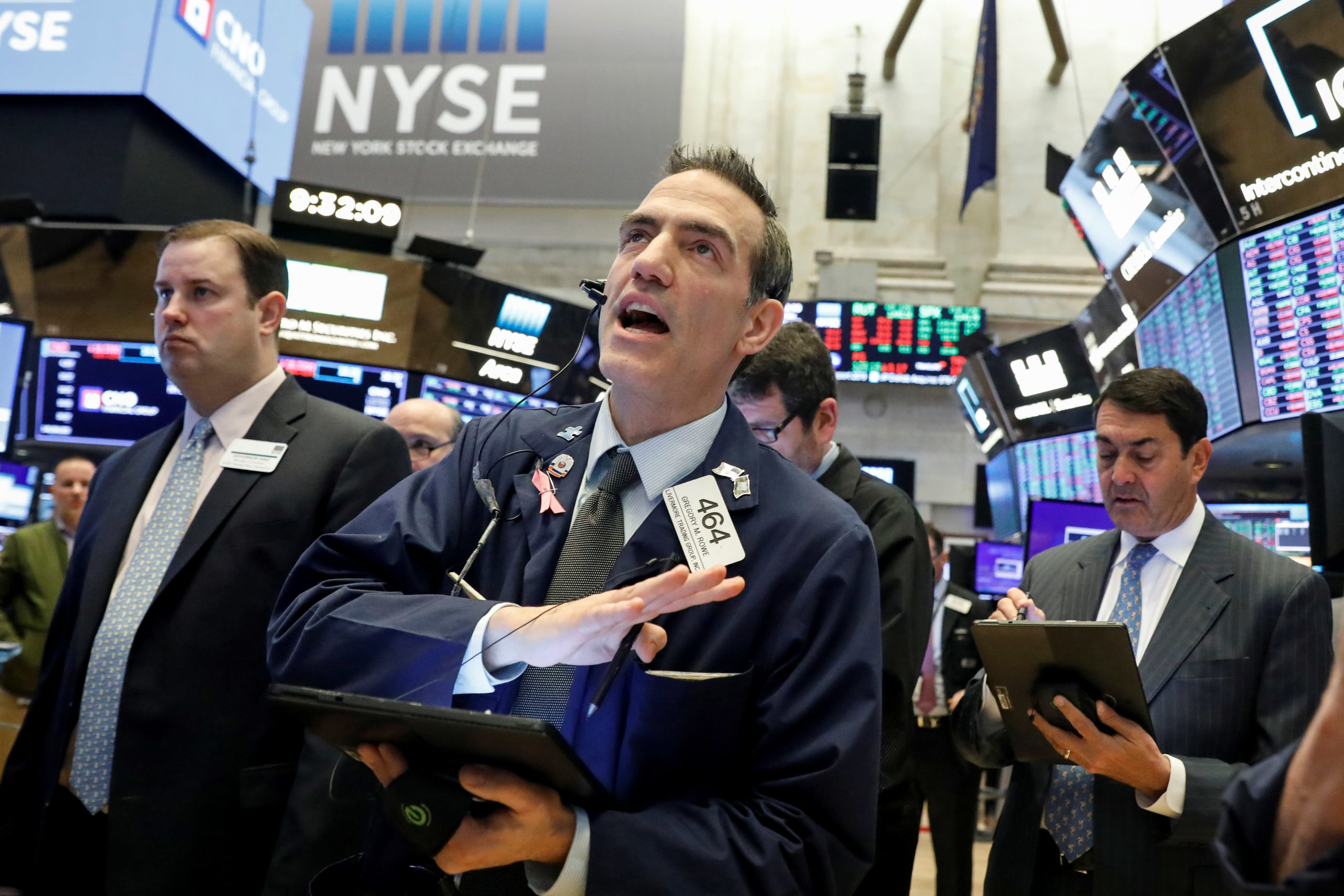U.S. shares rebounded on Thursday after falling for three consecutive days and benchmark Treasury yields dipped, as investors snapped up technology stocks and shrugged off worries about rising prices, for now.
After posting their biggest slump in at least 11 weeks on Wednesday, U.S. shares bounced back as cash-flush investors looked past concerns that accelerating inflation may prompt quicker interest rate hikes, and deployed their funds once more.
So intent were investors on leaving inflation worries aside that financial markets barely responded to Thursday’s data, which showed U.S. producer prices posting their biggest annual gain since 2010 in April.
“It’s rebound Thursday,” said John Augustine, chief investment officer at Huntington Private Bank, which manages $20 billion. “Given the money on the sidelines, investors are going to be coming back in.”
Still, Augustine said investors should re-deploy their funds in a measured way because “inflation concerns are not going away”.
By midday, the Dow Jones Industrial Average had added 1.4%, while the S&P 500 and the Nasdaq Composite narrowed earlier gains to be up 1.3% and 0.9%, respectively.
The MSCI world equity index, which includes 50 countries, also bounced slightly, gaining 0.2%.
U.S. stocks had tumbled earlier this week after data showed U.S. consumer prices unexpectedly jumped by the most in almost 12 years in April.
Some investors now worry that quickening price pressures could lead the Federal Reserve to tighten monetary policy sooner than expected, and reduce its supply of cheap money that has been propelling financial markets higher.
For now, however, inflation woes took a backseat.
Benchmark 10-year Treasury yields, which had spiked 7 basis points overnight in the biggest daily rise in two months, edged down by more than 3 basis points to 1.6625% as investors took a breather.
Benchmark two-year Treasury yields also pulled back to 0.1589%.
Against a basket of major currencies, the dollar was steady at 90.727, holding gains eked out on Wednesday when expectations of rate hikes burnished the currency’s appeal.
A firm dollar capped gains in the euro, which edged up 0.1% to $1.20875. [USD/]
The pull-back in Treasury yields helped gold to recoup some of Wednesday’s losses, when the jump in bond yields dampened the allure of non-yielding bullion. Spot gold climbed 0.7% off a one-week low to $1,825.61 per ounce.
A recent rally in oil prices also paused on Thursday as investors turned their attention to the coronavirus crisis in India, and as a key U.S. fuel pipeline resumed operations.
Brent crude slumped 3.5% to $66.93 a barrel, while U.S. West Texas Intermediate crude lost 3.8% to $63.53 a barrel.
Among cryptocurrencies, bitcoin, which tumbled 13% overnight when Elon Musk said Tesla would stop accepting it as payment because of its high energy use, fell below $50,000 again on Thursday following reports that the U.S. Justice Department is investigating crypto exchange Binance.
By midday, bitcoin had dropped 2.2% to $48.314.
(Reporting by Koh Gui Qing; additional reporting by Tom Wilson and Marc Jones in London; Wayne Cole in Sydney; Editing Nick Macfie, Dan Grebler and Cynthia Osterman)
Related
























